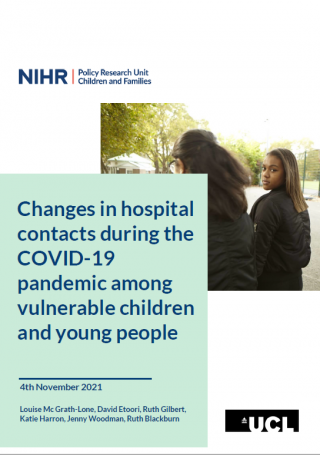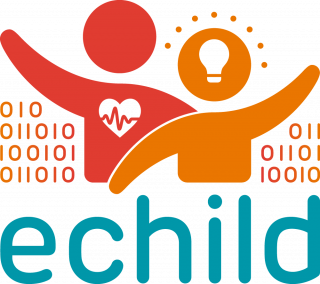Responsive Facility: Assessing the impact of the COVID-19 pandemic on vulnerable children (July 2020 - September 2021). Contributing to a broader ESRC-funded project: (ECHILD)
Research Team
Dr Louise McGrath-Lone, Dr David Etoori, Dr Ruth Blackburn, Dr Katie Harron, Dr Jenny Woodman, Professor Ruth Gilbert
Funding support from National Institute of Health Research, Administrative Data Research UK and Health Data Research UK
Themes
Early interventions for children and families; Responding to vulnerable children and families; Long-term conditions and disability
What we found out
- Vulnerable children bore large and disproportionate deficits in hospital contacts during the first nine months of the pandemic. These deficits were greatest for children with multiple vulnerabilities.
- As the pandemic progressed, we observed some ‘catch-up’ in planned hospital admissions for children aged 0 to 4 years and in outpatient attendances for infants.
- Vulnerable children were less likely than their peers to have face-to-face outpatient care during the pandemic.
Why this is important
The true extent of the deficits in hospital contacts borne by vulnerable children during the pandemic will be greater than our study shows as it focuses on two groups only. Deficits in planned care could have consequences for vulnerable children because of diagnoses or treatments that were delayed or foregone. Childhood is a time of rapid development and delays in treating health issues may hold a child back. Deficits in unplanned care may be positive (i.e. because fewer children needed care for infections or injuries), but could also reflect unmet health needs.
Policy implications
- Our findings indicate a need for targeted ‘catch-up’ funding and resources for child health, particularly for vulnerable children who were affected disproportionately.
- Secondary school pupils receiving special educational needs support or social care services may need to be prioritised for face-to-face outpatient care as it is unclear how effective remote care is for these children.
- More research about how delays to treatments for childhood conditions impact children’s outcomes is needed.
What we did
We used linked administrative data in the ECHILD Database to look at changes in the rates and numbers of hospital contacts that were planned (outpatient attendances and planned hospital admissions) and unplanned (unplanned hospital admissions) during the first nine months of the pandemic. We compared vulnerable children with their peers in two example groups: children aged 0 to 4 years who were born too early or too small or had a chronic condition; and secondary school pupils who received special educational needs support or children’s social care services. We also looked at whether vulnerable children were more or less likely than their peers to have face-to-face outpatient care during the pandemic.
 Close
Close



